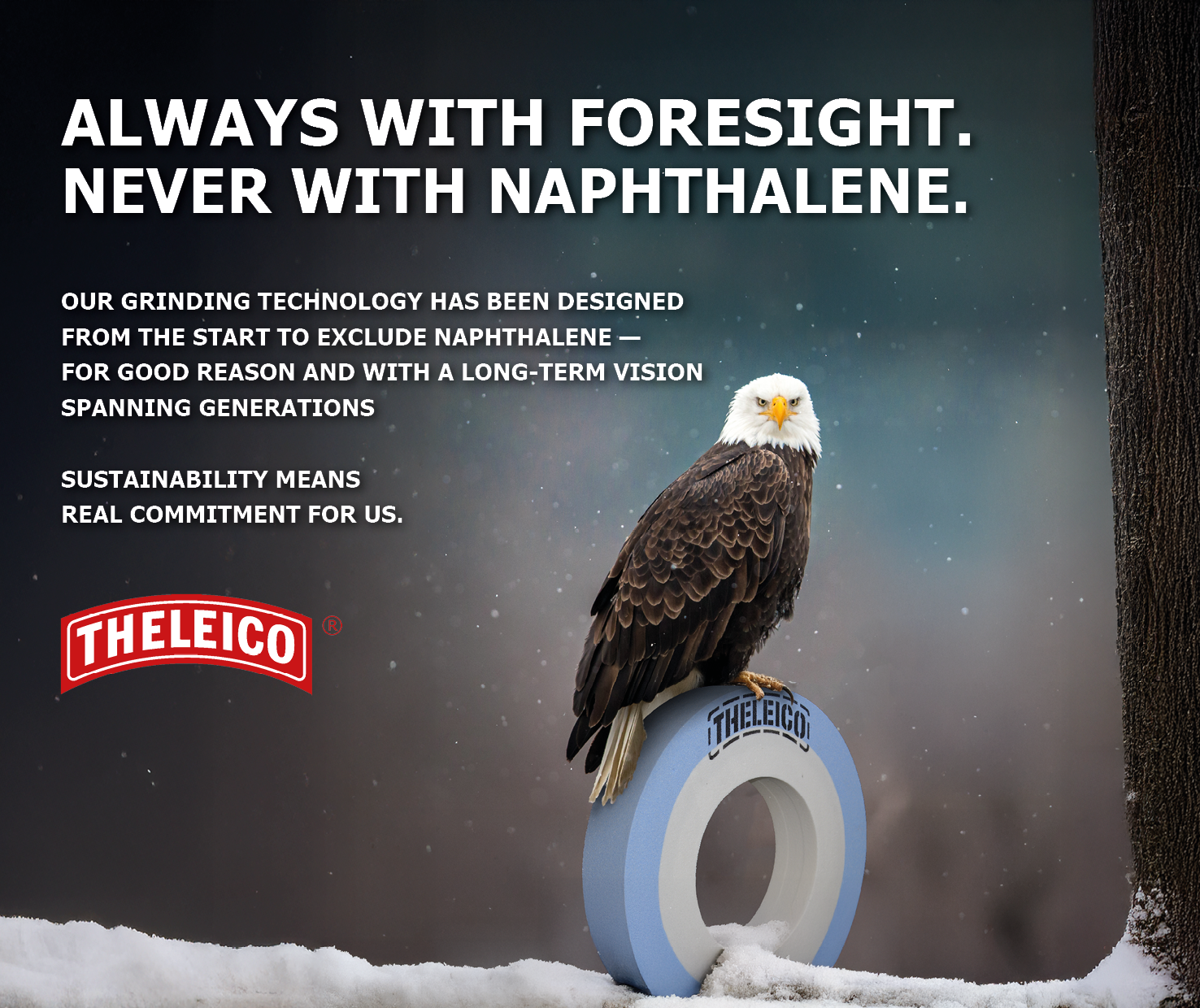
-
News
Why We Avoid Naphthalene

Sustainability starts in the details – why we avoid naphthalene in our grinding technology
Sustainability is not just a buzzword for us, but a conscious decision — and it has been so for generations.
From the very first grinding wheel in 1924, THELEICO made a clear choice: naphthalene has no place in our products — and that hasn’t changed to this day.
What many don’t know: this avoidance is an active contribution to environmental and health protection — long before sustainability became a widespread topic.
What is naphthalene?
Naphthalene is a hydrocarbon that was traditionally known primarily as a moth repellent — recognizable by its characteristic pungent, tar-like smell.
Despite its risks, naphthalene still has technical uses today: for example, it is used as a pore former in the production of ceramic abrasive grains.
Why is naphthalene problematic?
Naphthalene is not only unpleasant in odor — it is also harmful to health and the environment in several ways.
During processing or storage, the substance can:
-
irritate mucous membranes and cause headaches, nausea, or dizziness,
-
cause vomiting or confusion at higher doses,
-
likely be carcinogenic (classified by the EU as “probably carcinogenic”),
-
enter the environment and harm aquatic organisms.
If ingested, naphthalene can lead to gastrointestinal issues, breathing difficulties, convulsions, or trembling.
Especially during the thermal treatment of ceramic bonds (e.g., in the kiln), naphthalene vaporizes
and can be released into the air — resulting in potentially harmful emissions for humans and the environment.
Even after production, small amounts of naphthalene can off-gas — a risk THELEICO has always deliberately avoided.
We grind without compromise
We continue this commitment consistently — consciously and permanently refraining from the use of naphthalene in our products. Instead, we rely on modern, environmentally friendly pore formers that are safe both in manufacturing and application. This not only improves working conditions but also ensures sustainable product quality over the long term.
Conclusion: Sustainability starts small — sometimes in the invisible components of an abrasive grain. Our avoidance of naphthalene was no coincidence, but a sign of foresight and responsibility from the beginning.
Sustainability is not just a buzzword for us — it is and remains a core part of our corporate philosophy.
For more information about naphthalene, please visit:
https://en.wikipedia.org/wiki/Naphthalene


